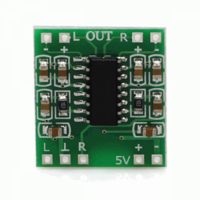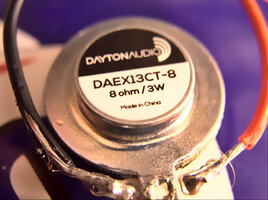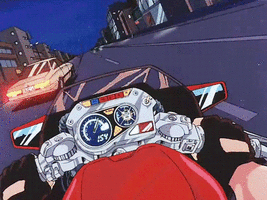Does this parse?
Audio clipping means that the amplitude is too high to be played properly. Along with the harsh sound comes higher (RMS?) power. That might go over what my speaker can dissipate in heat and thus damage it, despite being connected to a 3W max amplifier. Audio files can have clipping in them, thus the wrong file can destroy a speaker.

www.lexisrex.com
If you mean, "can you understand what it says", then yes. Are you asking for grammar improvements or if we can "get" what it says?
I do not agree with the idea in the sentence though. Even at low volumes, if the "clipping" is in the source already, say, a CD, the sound will be distorted. But at high speaker volume, then yes, the speaker can go in-out many times and rupture its cone, or misalign the cone base.
So if "clipping" is at the speaker level: Bad! You can damage it. If it was at line level, well, some guitars use that to get more metal sounds out of it ("overdrive")
Everyone's heard the effects of audio clipping even if they don't realize it. It's even used as a meme these days. What causes it? What does it sound like?

ledgernote.com
overdrive: emulating a too high gain at low volumes:
I like this graphic with the red part of the soundwave marked as clipped:
https://www.researchgate.net/figure...pling-a-Ultra-wide-band-signal_fig1_327805613
But note that this is still digitally, and can be solved by, say, using 24 bits or 32 bits to represent the wave, as music studios do.
Back to the sentences.
Audio clipping means that the amplitude is too high to be played properly.
I assume this is not your first sentence, because if it is you need to add context to it. "played"? As in, play a guitar? Sorry, I can't play this partiture on my guitar, it has audio clippings. Does not make sense, so add:
Audio clipping means that the amplitude of an audio signal is too wide (or loud) to be played back properly on a speaker.
*(but again, my opinion is that it can be amplified and clipped digitally, and played back at low volume and no harm is done to the speaker, yet it still sounds distorted)
Along with the harsh sound comes higher (RMS?) power.
Looking up what RMS is. Sound ok but look at that PEAK RMS. For me, that is the likely cause of speaker rupture, and not just the root mean square. But for overheating, yes RMS (I think).
OK so you have encountered a lot about “RMS” in audio recording, mixing and mastering. You might have read it many times in different tutorials featured in this blog or in recording forums. So what is really RMS? RMS is Root Mean Square It is assumed you are not a mathematician or have strong...

www.audiorecording.me
And the RMS part is confirmed here:

rftech.custhelp.com
I like PMPO, but in the music world, the term is frowned upon. And I do not what the acronym means.
PMPO: Abbreviation for
Peak Music Power Output. A very subjective specification designed to help provide "real world" wattage ratings for power amps and speakers.
Acronym for
peak momentary power output. This term refers to the maximum power output achieved for a speaker system under perfect conditions.
PMPO is a controversy term, as many feel it is used as a marketing ploy, since the perfect conditions on which
PMPO are based are next to impossible to achieve in a home where the speaker system is set up.
That might go over what my speaker can dissipate in heat and thus damage it, despite being connected to a 3W max amplifier.
Dissipate in heat... ok, so you are talking about prolonged sound exposure, and not a quick "pop" that kills the speaker because it was a 1W speaker and I connected it to a 3 Watt amplifier?
Audio files can have clipping in them, thus the wrong file can destroy a speaker.
A clipped soundwave, means that the soundwave goes up to the max, then goes down to the max. Does this kill the speaker? Or if the signal is only on the top, let's say it's a flat horizontal signal, but instead of being in the zero (normal silence), it's actually on the top. Would that also destroy a speaker? (I have no idea - I think we would hear nothing, but the speaker would get hot "playing" that sound)
So I think that clipping contributes to a higher RMS, which is that what kills a speaker by overheating it IF the speakers have a too low wattage for your amplifier over a certain volume, and thus is unable to dissipate the heat produced.
Here is an article that says just what you are saying:
https://geekmusician.com/can-speakers-overheat/
it uses words like
over-excursion and is well made.
Does this help?











